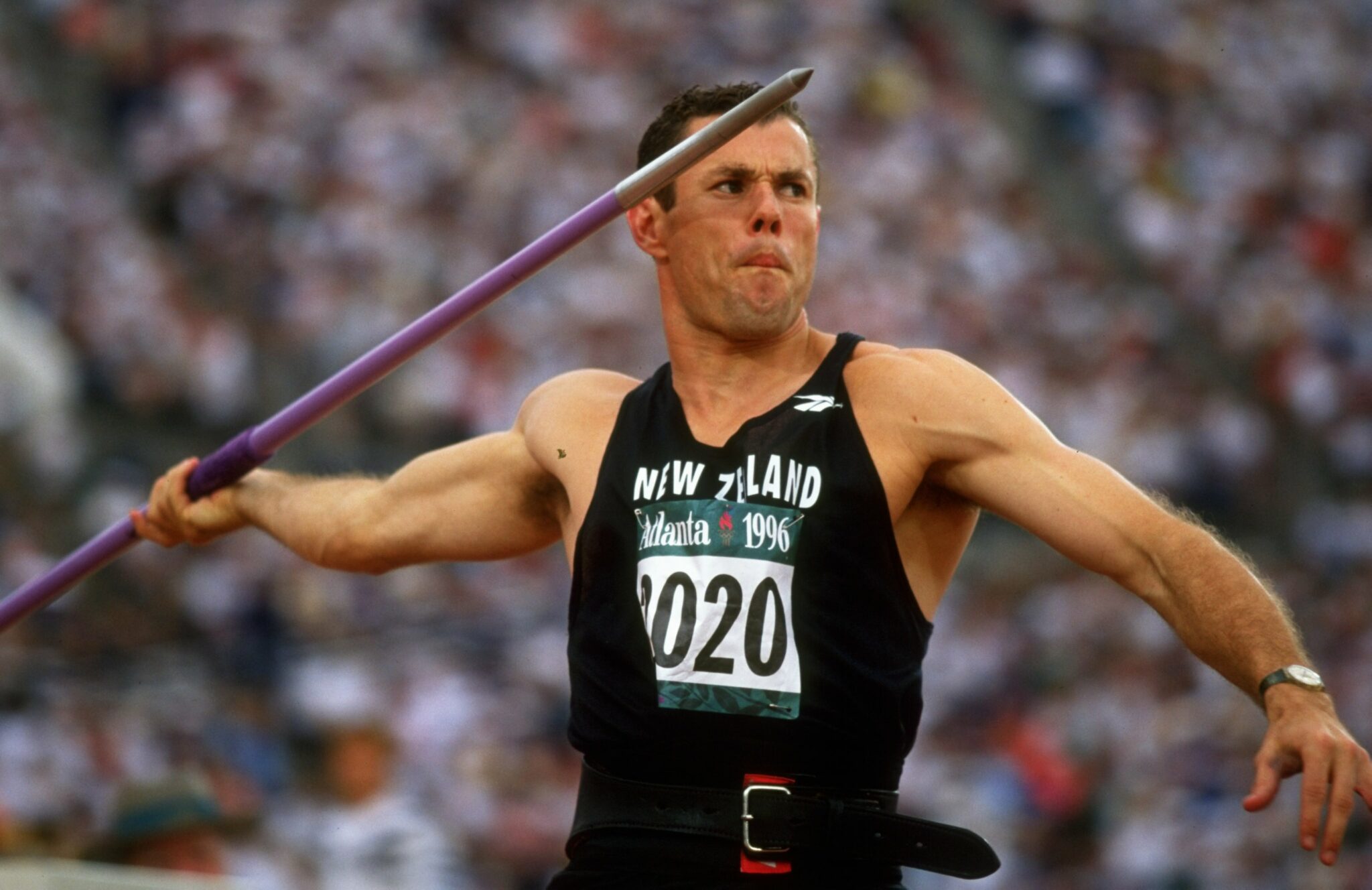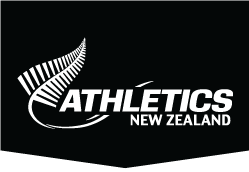News & Updates
Gavin Lovegrove - World Athletics Championships Time Tunnel

New Zealand record-holder Gavin Lovegrove came agonisingly close to a medal in the men’s javelin at the 1991 World Championships. Here Gavin is pictured competing at the 1996 Atlanta Olympics. Credit: (Getty Images).
At the 1991 World Athletics Championships in Tokyo javelin thrower Gavin Lovegrove came very close to busting the podium with an excellent fourth place position. We reflect with the 55-year-old thrower on his memorable performance in the Japanese capital.
If it wasn’t for the mighty boom of the arm of Finnish javelin thrower Seppo Raty, it would have been Gavin Lovegrove and not Beatrice Faumuina who would have claimed a maiden World Athletics Championships medal for New Zealand.
While Beatrice is rightly lauded for her historic women’s discus gold at the 1997 World Athletics Championships in Athens in the sweat-inducing humidity of Tokyo some six years earlier, Gavin came perilously close to earning a global podium spot.
Raised in Hamilton and possessing “a good arm” he discovered javelin at school – although he was no overnight success. Enjoying the buzz and technical puzzle of mastering the implement a key moment of his early development came thanks to the wise advice of his school javelin coach Graeme Abbott.
“I distinctly remember one lunchtime in practise something just clicked,” he recalls. “I went from a 42 metre to a 54-metre thrower and never looked back. I remember that feeling and wanted to throw that far again.”
It proved an inspired choice. At the age of just 18 – and under the guidance of coach Barbara Stephens – he won the bronze medal at the inaugural 1986 World U20 Championships before the following month claiming a Commonwealth Games bronze medal in Edinburgh.
Still a teenager, Gavin made his World Championship debut in Rome, but it proved a tough experience for the young thrower as he placed 23rd in the Italian capital and failed to advance to the final.
“It was my first World Championships and here I was facing all these javelin throwers I’d only previously read about,” he says. “At that stage (of my career) I don’t know whether I believed I really deserved to be in that company.”
However, four years on at the next World Championships in Tokyo (back then the World Championships were held every four years and not every two as they are today) he had the experience of being a regular on the European circuit and Gavin was in a much better place physically, technically and mentally.
Now under the coaching guidance of Dragan Ivanov – and from late-1989 competing under the new specification javelin – at the 1990 Commonwealth Games in Auckland he claimed another bronze medal – behind the world-class English duo of Steve Backley and Mick Hill.
Performing well on the international stage he hurled the Nemeth javelin – a spear which was later outlawed – to 85.18m in London the month before Tokyo and he was confident of performing well.
“I felt like I was in really good rhythm with my throwing at that time,” he says. “When you are in good shape and light on your feet you are confident of doing well.”
Never one who enjoyed competing in the heat, Gavin had to battle through the intense humidity of the Japanese summer. Making sure he hydrated well to combat the conditions he powered the javelin out to 82.08m in a dramatic qualification which saw two of the pre-event favourites – Backley and Czech great Jan Zelezny – exit the competition.
Advancing second out of his pool behind the Finn Kimmo Kinnunen 88.48m and sixth overall into the final gave him a lot of confidence leading into the battle for medals. “I was happy with my timing, and I knew from my training I’d go well in the competition.”
The Kiwi began the final with two relatively modest marks of 76.16m and 75.54m before finding his range with a third round 82.30m to move into sixth overall and ensure he had three more throws in the competition.
Building nicely, he fired the javelin out to 82.02m in round four before a foul followed with his penultimate hurl. However, remaining calm and composed he dramatically leap-frogged into provisional bronze with an 84.24m effort in the sixth round.
He then had the agony of sitting, watching and waiting for the remainder of the competition to unravel. Unfortunately for Gavin he was denied his spot on the podium as Seppo Raty launched a massive 88.12m with the third last throw of the competition to catapult to silver and relegate Gavin to fourth.
Raty’s countryman Kinnunen won the gold with 90.82m with Vladimir Sasimovich of the Soviet Union in bronze (87.08m).
“It was an exciting feeling that I could be on the podium at a World Athletics Championships, yet I knew it could be taken away from me at the last second,” he recalls. “When Seppo was at the end of the runway what can you do, it is such a helpless situation. I can’t just knock over a rack of javelins you just have to take it. I guess I never had the medal to begin with, so it didn’t feel like I’d lost it. Fourth was still pretty good, it is up there and with the World Championships switching to every two years I thought I’d have more opportunities.”
Unfortunately for Gavin his fourth place in Tokyo proved to be the highlight of his career on the global stage. He finished ninth at the 1992 Barcelona Olympics but failed to progress from his qualification pool and the 1993, 1995 and 1997 World Championships. There were other highlights. In 1994 he claimed a third successive Commonwealth Games bronze medal and in 1996 he set a New Zealand record of 88.20m in Oslo – which still stands today. However, an untimely injury scuppered his chances of delivering his best at the Atlanta Olympics later that year.
A persistent back problem ultimately led to his retirement from the sport in 1998. Today working as a web developer in his native Waikato he had carried out some javelin coaching over the past quarter of a century but looks back with immense pride on his accomplishments at the 1991 World Athletics Championships.
“Back then the worlds were only held every four years, it was massive global event and everyone wanted to perform well,” he says. “I held my form that year through to the end of the season, I enjoyed a good year, and I was very proud at what I achieved.”
